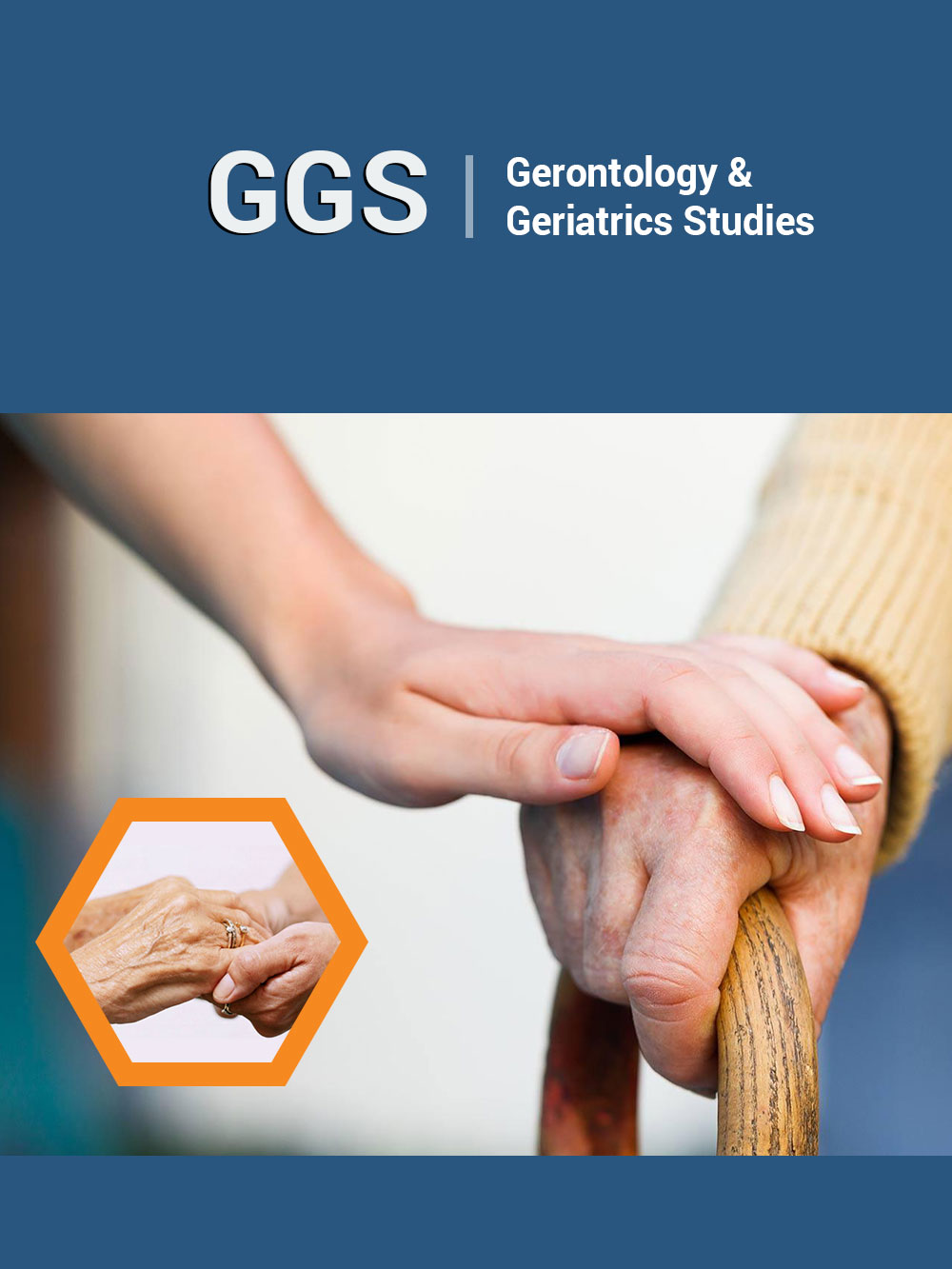- Submissions

Full Text
Gerontology & Geriatrics Studies
Academic Competencies at Post-Secondary Gerontology Programs
Birgit Pianosi*
Department of Gerontology, Canada
*Corresponding author: Birgit Pianosi, Department of Gerontology, Canada
Submission: February 22, 2019Published: March 14, 2019

ISSN 2578-0093Volume4 Issue4
Introduction
For several decades, there has been considerable discussion about the development of gerontology education around the world. As the population continues to age, it is imperative that gerontology programs continue to grow and develop so as to respond to both the challenges and opportunities rooted in a diverse population. In theory, students who specialize in gerontology will be able to provide, develop, and improve services to older adults in acute care facilities, hospitals, long-term care facilities, community and government agencies, and hospice care facilities, among others. For older adults to receive proper care, welfare, and housing targeted to all of their demands and needs from preventative care to end-of-life care, professionals must integrate psychological, social, and biological aspects involved in working with this population. This means students earning a diploma and/or degree in gerontology must learn about the many challenges and opportunities older adults face and be able to develop plans and measures to best serve the needs of this population.
Although many people already work with older adults, those professionals often do not have any formal education related to aging, thereby substantially minimizing the effectiveness of care and service available to older adults. This alone outlines a distinct need for professional specialization in the field. Academic institutions that offer gerontology as a certificate, diploma, or degree do so in very unique, varied, and unstandardized ways. While each gerontology program is independent in how they deliver their curriculum, the Academy for Gerontology in Higher Education (AGHE) has adopted Gerontology Competencies for Undergraduate and Graduate Education on November 20, 2014, outlining a fundamental set of knowledge, skills, and attitudes that will enable Gerontology graduates to provide competent services and care to older adults. Competencies are necessary for the creation of job profiles, curriculum design, and the legalization of the services provided by gerontology professionals to deliver safe care and services.
Formulating and compiling an overall common understanding of pertinent competencies within gerontology is important for the profession to reinforce its stance as an independent field of study. By doing so, credentialing professionals with a set of required knowledge and abilities will standardize the profession itself. It can be predicted that with the integration of post-graduate students in gerontology, the field will experience positive change and growth. To bridge the gap between miscommunication of concepts of gerontology competencies, the importance of gerontology must be stressed, and universities and colleges must continue to develop and provide courses across a wide range of aging aspects. The expanding demographic of older adults with their declining health and incremental social needs, coupled with a rising life expectancy, presents a challenge for more applicable and practical applications of gerontological knowledge, competencies, and training. Providing relevant, ethical, and safe care and services to older adults is paramount, not only in creating and maintaining their quality of life, but also in the development and changing of attitudes towards aging, health, and end-of-life care. In the future, the outcomes of this challenge have the potential to positively affect the economy, our social efficacy, and overall individual life experiences. Movement towards professionalizing gerontology and gerontologists (aging specialists) may well aid in continuity and optimization of aging services, both in the health care and social care domains.
© 2019 Birgit Pianosi. This is an open access article distributed under the terms of the Creative Commons Attribution License , which permits unrestricted use, distribution, and build upon your work non-commercially.
 a Creative Commons Attribution 4.0 International License. Based on a work at www.crimsonpublishers.com.
Best viewed in
a Creative Commons Attribution 4.0 International License. Based on a work at www.crimsonpublishers.com.
Best viewed in 







.jpg)






























 Editorial Board Registrations
Editorial Board Registrations Submit your Article
Submit your Article Refer a Friend
Refer a Friend Advertise With Us
Advertise With Us
.jpg)






.jpg)














.bmp)
.jpg)
.png)
.jpg)










.jpg)






.png)

.png)



.png)






